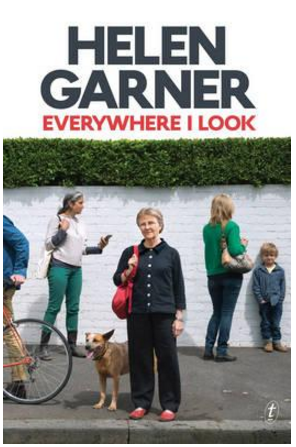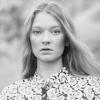This is a Book That piece by Bri Lee about the joys/perils of reading Helen Garner.
I’m in the middle of writing my first book and it’s:
• First-person memoir by a woman (me)
• About the law (and some heavy shit)
• In Australia
So every single person I spoke to asked me if I’d read Helen Garner. They told me to read all the Garner. To get up-to-my-eyeballs in Garner. To go to bed with Garner and to wake up with Garner, print-a-picture-of-her-face-and-wear-it-as- a-mask-during-sex for Garner.
I’m a good girl, so I went out and bought the Garner. I started with Joe Cinque’s Consolation and This House of Grief, and I read them in the same week I started my manuscript. It also turned out to be the week I stopped writing my manuscript, because I froze. I had that horrific realisation that someone had already written what I wanted to write – and they’d done it better than I could ever hope to.
I didn’t write for three weeks. It was embarrassing because I’d just quit my job and told everyone I was now a “full-time writer” but it wasn’t happening. I went through sinusoidal phases of intense apathy and intense desperation. I went on long walks to try to “find my voice” and then thought about how Helen would probably laugh at me if I ever told her I was trying to “find my voice”.
Then Everywhere I Look came out, and it won an award, and people said awesome things about it, and I thought: Well, fuck, it can’t get any better (than her other books) or worse (for my book) so why not give it a crack? I inhaled it. I had to pace myself because I got to the last third and felt pre-emptive remorse for not rationing out the chapters. I laughed and I wept and I had a few revelations. The revelations were as follows:
1. Helen Garner is now old and I am still quite young, therefore I am allowed to be a shit writer.
Before you skewer me – one of the themes she explores in this book is aging. In fact, I’ve never read someone write so sparingly and yet touchingly about aging. She makes you feel empathy rather than pity. She highlights her achievements without making the reader resentful. In other words, she made me realise I’m a huge baby and that nobody should expect anything amazing from me (yet?) and so I might as well flap my big baby wings and risk falling on my face.
2. Helen Garner has unique experiences and perspectives that I could never fully comprehend – i.e. I couldn’t write anything like Garner even if I tried (really hard).
This is linked to the “finding my voice” embarrassing thing I mentioned earlier. I didn’t realise she had been married so many times. I didn’t realise she had gaps in between her books and projects and that she had a complex relationship with her mother and daughter, and basically I didn’t picture her as a real human being. I think her writing is perfect and so I presumed she was perfect.
In my humble opinion, some of her most affecting writing comes from her admissions of imperfection. We all know the power of vulnerability in art, so I shouldn’t be surprised by this, but I am definitely still surprised by the realisation that I have different vulnerabilities, and therefore also, different strengths.
3. Sometimes Helen Garner’s books are successful and sometimes they are not.
She writes of feeling resentful towards another successful writer, and talks about how some of her books were “loved” and others were not, and she might never fully understand why. What I learned from this is that you’re allowed to write the book you want to and risk that not everyone will love it, or that no one will love it, or something in between. That if even the mighty Helen Garner keeps writing, then I can at least start.
So there’s a theme emerging here.
It’s only now that I’ve really got myself in deep with this whole “being a writer” thing, with manuscripts coming along and festivals coming up, only now with a touch of hindsight, that I can see where I went wrong.
I read perfection and panicked. In Joe Cinque’s Consolation I saw a finished product and compared it to my first draft. In This House of Grief I saw a woman who had been writing for decades and compared it to my just-got-my-pen-license juvenile (lack of) sensibilities. I couldn’t break the spell until I read Everywhere I Look – until Garner let me in that bit further.
And I tell you what, it had to be her. In that three-week, bed-ridden funk, I read so many how-to-write books and asked so many people for advice. “Just do you!” They said. “Find your own voice!” “Write your own book!” I thought I had Garner’s voice there in the back of my mind, haunting me, but that cruel monster was really my own creation.
When I read Everywhere I Look, the clouds broke and the sun shone through and I heard Garner’s real voice. This book gave me a gift I didn’t realise I was yearning for – a kind of hero to rest my faith in.
She has navigated this prickly path of being not only a writer, but a female writer in Australia talking about things people prefer not to question, and she fucking nailed it.
In my previous career I was able to point to a judge or barrister in her fifties or sixties and say, “I see what she has and I admire it, but I don’t want it.” I now see what Garner has, because in Everywhere I Look she showed me, and I want it in my own way, for myself.
The path won’t be easy and it won’t always be fun, but it’s what I want, so I finished this book and got started on my own.
Everywhere I Look is our Bloc Club book of the month. Join in the discussion! Click here to find out more.
This is a The Book That piece, part of a series where writers reflect on books that have been particularly meaningul, profound, or plain-old angry-making. To read more in this series, click here.
To have the latest from Writers Bloc delivered straight to you, click here to sign up to our newsletter. We will literally deliver our website's best content, giveaways and opportunities to your figurative door.
Bri Lee
Bri Lee is a Brisbane-based writer and the founder of Hot Chicks with Big Brains. She also works in photography, videography, and editing, and her work has appeared in Scum, Voiceworks, Acclaim, and Spook.


